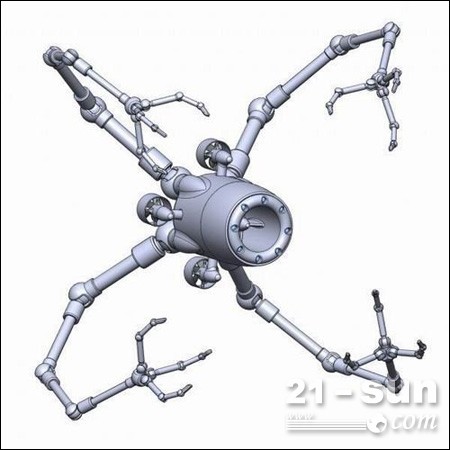Somewhere in Hebei, there is a cylinder factory, which is a military enterprise. One day in 2014, this tank factory received a very important task, which was to produce hydraulic cylinders for the “arm†of submarine robots .
The hydraulic cylinder is a common equipment. It consists of a cylinder liner and a piston rod. Through the hydraulic principle, the piston rod reciprocates, thereby driving the mechanical equipment to perform the actions of grasping, relaxing, and pushing.
In our daily life, we can often see excavators, bulldozers, and loaders working on various construction sites. The reason why these construction machinery can do these jobs is done by hydraulic cylinders. So, the image says, Among the pistons of hydraulic cylinders, these are the "arms" of these machines.
Based on the work of the piston rod, wear and rust resistance are the two most important properties. In order to achieve wear and corrosion resistance, the piston rod is usually plated with a layer of metallic chromium by electroplating. Because chrome is a relatively wear-resistant and corrosion-resistant metal, it can guarantee that these mechanical "arms" can work for a long time.

However, in the working environment of the submarine robot, the chrome-plated piston rod can not meet the requirements. Due to the severe corrosive nature of the seawater, the arm of the submarine robot, if it is made of an chrome-plated piston rod, will be rusted and will not work properly in a short time.
In order to make the arm of the submarine robot work properly, the cylinder factory uses stainless steel to make the piston rod. The submarine robot's arm is very thick, up to 3 meters long and weighs 1.7 tons. Compared with general steel, stainless steel is not only expensive but also difficult to process.
Who knows that stainless steel is resistant to piston rods, and it is not strong enough to corrode seawater. It should be replaced once every six months.
In order to find a more suitable piston rod for submarine robots, this military industrial enterprise has found Hunan Hongyu Wear-resistant New Materials Co., Ltd. (listed by Shenzhen Stock Exchange, referred to as Hongyu New Materials SZ.300345) through various channels. Professor Rodford. At that time, Professor Luo Defu was researching and developing PIP technology. The Chinese name is controlled ion infiltration technology, which is a brand new metal surface modification technology.
PIP uses a variety of processes to infiltrate non-metallic elements and trace metal elements into the surface of metal substrates to form a multi-layer composite layer composed of metal oxides and non-metal elements. This layer has a very strong wear resistance. Corrosion resistance. Not only that, PIP technology can also control the thickness of the layer to meet different wear and corrosion requirements.
Although Professor Prudential’s PIP technology was still in the pilot stage at the time, the military-industry cylinder enterprise with advanced vision was willing to give it a try.
The results of the use show that Professor Rodford did not live up to the expectations of this military industry. Today, one and a half years later, the arm of the submarine robot is still not rusting and still working normally.
The superior wear and corrosion resistance makes the PIP technology stand out in the military industry.
Due to the superior performance of PIP products, the application fields of PIP technology are further broadened. On the guns of exporting weapons, on the sucker rods of oil-mining enterprises, PIP products are shining on the piston rods of agricultural machinery of the world's largest agricultural machinery company, John Deere.
Changshu Herun Import & Export Co.,Ltd , https://www.herunchina.com